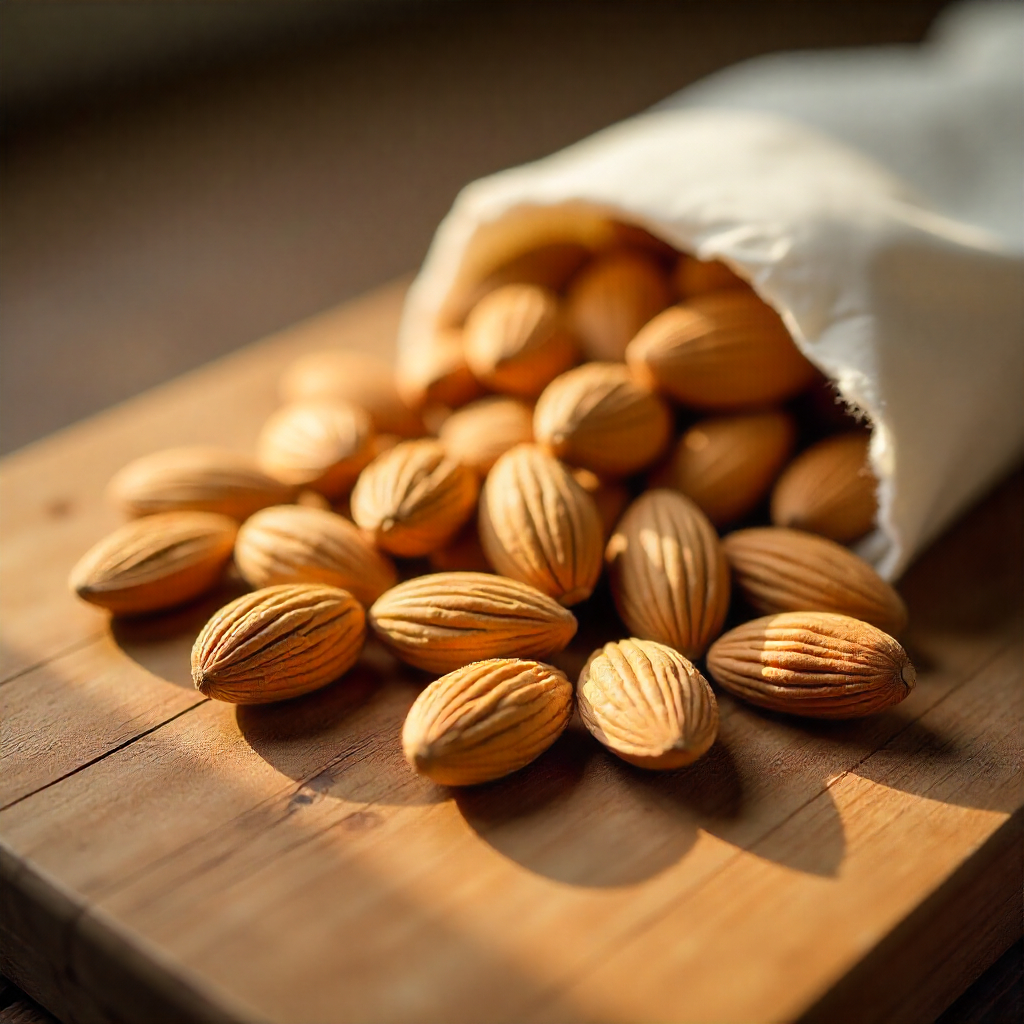Almonds rank among the most delicious and nutrient-rich foods available, and I want to share comprehensive information about their nutritional benefits, protein content, energy value, and suitable consumption guidelines.
In a 100-gram serving of almonds, you’ll find only 10 grams of carbohydrates, making them a low-carb option. They contain 21 grams of protein, matching the protein content found in corn. The fat content reaches 59 grams per 100 grams, while providing 655 calories of energy.
Almonds stand out as exceptionally flavorful and nutritious. Many people prefer foods with reduced carbohydrates and increased protein and fat content. While millet contains 68% carbohydrates with 15% protein and fat, almonds offer higher fat and protein levels with fewer carbs.
These nuts are particularly beneficial for individuals requiring enhanced energy for mental activities like reading, writing, and meditation. They’re also excellent for people engaged in physical activities such as heavy lifting, playing with children, weight training, and gym workouts.
For diabetic individuals, almonds provide an ideal low-carbohydrate, high-protein, high-fat dietary option. They don’t cause rapid blood sugar spikes, making them a superior food choice.

Almonds offer remarkable benefits for hair health. Many people experience improved hair growth when consuming 20 almonds daily. These nuts contain undiscovered nutrients that haven’t been fully studied yet. While we observe their positive effects on hair growth, the exact mechanism remains unknown.
However, almonds come with a higher price tag. Those with limited budgets might find them expensive, while those with adequate financial resources can easily afford them. Since almonds are widely appreciated, I’m sharing this information for everyone’s benefit.
Consider the timing and method of almond consumption carefully. Historically, primarily bodybuilders consumed almonds due to their cost. If consumed excessively, they won’t promote hair growth, as only bodybuilders traditionally ate them regularly.
The recommended daily intake is 2 to 4 almonds. Family members often advise moderation since almonds are both delicious and expensive. Starting an almond consumption routine isn’t harmful – it’s actually beneficial.
People of all ages can enjoy almonds, including bodybuilders, weightlifters, and gym enthusiasts. When visiting others’ homes, we often bring packaged dry nuts as gifts and serve them to guests, typically consuming 10 to 20 pieces.
Some people store almonds at home and eat 20 to 30 daily. However, avoid consuming dry almonds directly. Eating them in their dry state may contribute to weight gain around the midsection because almonds are high in fat, and dried almonds contain only 5% water content.
Dry almonds aren’t as flavorful as their soaked counterparts, resulting in waste. Instead of spending money unnecessarily, prepare them properly for better health benefits.
To improve digestibility, soak dry almonds in water for 6 to 8 hours. For morning consumption, soak them overnight. For evening eating, soak them in the morning using plain water.
When offered dry almonds socially, you might eat them out of politeness, but avoid them for health reasons. After soaking, remove the skin before eating. Peeling soaked almonds enhances their taste and makes them more enjoyable.
If time permits, always peel them – this won’t cause harm or disease. Skinned, soaked almonds taste significantly better.
You can create almond paste by grinding peeled, soaked almonds in a blender until smooth. This paste works wonderfully for children and elderly individuals who might have difficulty chewing. The paste is suitable for anyone who can consume it.
For strength building, you can eat 15, 20, 30, or even 50 soaked almonds without harm – consume as many as desired based on your needs and budget.
Soaking transforms almonds into a more digestible state, making them easier to break down and absorb. This pre-digestion process makes nutrients more available.
Pregnant women, children, athletes, bodybuilders, weightlifters, gymnasts, manual laborers, and those seeking weight gain can consume larger quantities if budget allows.
I personally enjoy fruits for dinner, and you can combine nuts with fruits or other dry nuts. Morning consumption with sprouts is also beneficial. Pair almonds with fruits rather than processed foods like idli, dosa, upma, or peas. Natural foods complement fruits better.
If budget isn’t a concern, include nuts with dried fruits in your diet. Remember to maintain healthy cholesterol levels throughout the year. HDL (good cholesterol) increases while omega-3 fatty acids help reduce bad cholesterol, supporting heart health.
I recommend maintaining awareness of cholesterol balance for optimal health benefits.